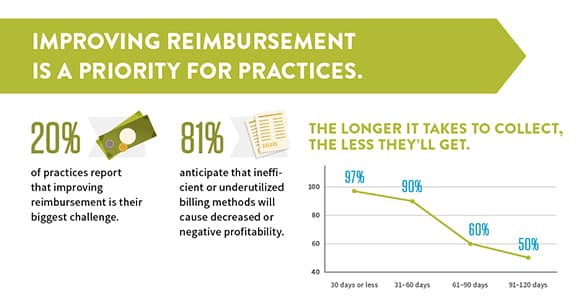Mental Health Coding Tips to Avoid Payer Scrutiny
These days, all medical specialties are vulnerable to payer audits and denials. However, providers who offer mental health services are particularly at risk because insurers have begun to focus not only on coding accuracy but also on the frequency and duration of services rendered, says Mike Strong, MSHCA, MBA, CPC, CEMC, bill review technical specialist at SFM, The Work Comp Experts.
“Carriers are looking at utilization,” he says. “They do a lot of data mining. Mental health providers and clinicians want to make sure they’re documenting services correctly.”
This documentation is critical regardless of whether the provider is a licensed clinical social worker, psychotherapist, licensed mental health counselor, physician, or non-physician practitioner, he adds.
Identifying key documentation elements
What type of documentation do carriers want to see? To avoid payer scrutiny, Strong says psychotherapy documentation should include the following:
- Patient’s diagnosis. This is important because carriers use this information to determine whether therapy (in general) is medically necessary and whether the specific type of therapy is warranted, says Strong. For example, insurers may question the validity of therapy provided to a patient with a cognitive or neurological deficit or a traumatic brain injury when a medical or drug intervention might be more appropriate, he adds.
- Type of therapy provided. Physicians likely provide supportive therapy while other mental health providers may offer an array of options, such as cognitive behavioral therapy, insight-oriented therapy, or psychoanalysis. Note that carriers may have different benefits for psychodynamic therapy or they may not cover it at all, which is why it’s important to specify this information so there’s no question about coverage, says Strong.
- Goal of the therapy. What are the patient’s short- and long-term goals?
- Patient’s progress. How does the therapy continue to benefit the patient?
- Duration of therapy services. What are the start and stop times of the therapy?
Knowing what psychotherapy codes to report
Documentation is equally as important as capturing the correct psychotherapy code. As of 2013, CPT distinguishes between physician and non-physician providers performing psychotherapy services. Non-physician providers who perform psychotherapy services must report CPT code 90832, 90834, or 90837, depending on the duration of the service. Physicians who provide these services must report CPT code 90833, 90836, or 90838, also depending on the duration of the service. All of these time-based codes must include supporting documentation that clearly indicates the time spent providing the psychotherapy service, says Strong.
3 coding tips for physicians providing mental health services
Strong provides the following tips for physicians providing psychotherapy services:
- Clearly document the psychotherapy. Carriers want to see that a physician billing for psychotherapy has performed an actual therapeutic intervention. Coordination of care isn’t psychotherapy, and neither is spending extra time simply talking with the patient, says Strong. “Just because your visit takes longer than expected doesn’t mean it’s psychotherapy. Carriers are going to look at this and target it,” he adds.
- Don’t forget the evaluation and management (E/M) code. Physician psychotherapy codes are add-on codes that physicians can only report in conjunction with an E/M service.
- Be mindful of upcoding. Once a physician applies the DSM criteria for diagnosis (potentially reporting 99214 or 99215), his or her E/M levels should gradually decrease over time to 99213 or lower as the patient presents for medication management with no new complaints or complications, says Strong. Without documentation to suggest a complication or new complaint, carriers will also expect this downward trend in patient acuity, he adds.
5 coding tips for non-physician mental health providers
Strong provides the following tips for non-physician mental health providers performing psychotherapy services:
- Always document how the therapy benefits the patient. Many carriers are concerned with over-utilization of psychotherapy services—especially when it appears as though the patient receives no benefit or hasn’t made any progress, says Strong. “If the individual is not taking the sessions to heart … or is resistant to the psychotherapy interventions, it’s not going to benefit them. At that point, there will be a question of whether it’s medically necessary to perform these services.”
- Ensure that documentation justifies any sessions that extend beyond 45 minutes. Carriers want to see documentation that supports why the additional time is necessary, says Strong. Without it, providers could face lower payments or even denials, he adds.
- Know what’s excluded from family psychotherapy (CPT code 90847). Mental health providers should not report this code when providing marriage counseling, a service that many carriers exclude from coverage, says Strong. The purpose of this code is to resolve a problem related to a family dynamic, he adds.
- Only report interactive psychotherapy (CPT code 90785) when there is a bonafide communication deficit. This code is meant for individuals who cannot communicate verbally or in writing—not those whose primary language is not English or who may have lost their voice temporarily due to a medical problem such as laryngitis, says Strong.
- Report group therapy (CPT code 90853), when appropriate. Carriers may look for this code (rather than the higher-weighted individual therapy code) when patients undergo bereavement counseling during a public tragedy or for court-ordered alcohol treatment provided in a group setting, says Strong. Report this code for each individual who attends the group therapy, and be prepared to provide carriers with a redacted list of participants, he adds.
Compliant documentation and coding helps all providers avoid costly denials and stay under the radar in terms of payer audits—and those rendering mental health services are certainly no exception, says Strong.



















